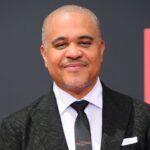On Dec. 4, UnitedHealthcare CEO Brian Thompson was fatally shot in front of the New York Hilton Midtown hotel in what police have said was a deliberate, targeted killing. Bullet casings recovered at the scene were engraved with the words “deny,” “defend,” and “depose,” similar to a phrase — “delay, deny, defend” — used to describe a strategy of insurance companies rejecting claims.
While a motive has not yet been established, the murder has led to healthcare companies amping up their security measures as experts open up to PEOPLE about the alarming public response.
Following Thompson’s death, Matthew Dumpert, managing director at Kroll Enterprise Security Risk Management, said they’ve had numerous CEOs and other executives reach out in the past two days to increase protection and personal security “around the clock.”
“An executive is the face of the organization. A CEO is the lightning rod that attracts the ire regardless of the product or services sold,” he told CNBC.
UnitedHealthcare — the biggest private health insurer in the U.S. — removed Thompson’s and other executives’ photos from its website shortly after his death; although the intention is unknown.
Never miss a story — sign up for PEOPLE’s free daily newsletter to stay up-to-date on the best of what PEOPLE has to offer, from celebrity news to compelling human interest stories.
The need for top and high-profile executives to have security has increased in recent years, especially as major corporations, like those in healthcare, find themselves on the receiving end of a lot of criticism.
However, Rob D’Amico — retired FBI special agent and security expert — tells PEOPLE that security measures are often not a priority, and expensive for companies to maintain.
“I think that there’s some issues out there and healthcare companies are going to have to take it seriously,” he says. “A lot of times companies don’t take security seriously. Security never generates revenue. Ever. It’s always one of the first things cut.”
D’Amico says that unfortunately, he suspects Thompson’s murder will spark a rise in threats targeting high-level corporate officers.
“It’s going to wake up some healthcare companies that not everyone’s saying that this is a horrible thing,” he explains, noting that there’s likely “enough people mad out there who have lost people that have been denied coverage.”
The PEOPLE Puzzler crossword is here! How quickly can you solve it? Play now!
Despite the shocking shooting, many Americans have expressed mixed feelings on social media about the act due to their personal feelings about the healthcare system as a whole. Leemore Dafny, professor at Harvard Business School and Harvard Kennedy School, called the online response to Thompson’s death “horrifying” while also recognizing the years of consumer frustration with healthcare in the U.S.
“Some people have expressed that this is an unexpected consequence of a great dislike and distrust for the insurance industry,” she tells PEOPLE. “It speaks to the level of frustration and despair that Americans have with our incredibly expensive and yet inequitable healthcare system that appears to make arbitrary decisions on various treatments.”
However, she stresses, “This is murder. This is not an expression of discontent with an industry.”
Dafny notes that “the health insurance industry has long had truly awful PR,” which is in part “their own fault.” But she also talks about “being mortified that anybody would celebrate a murder.”
“They’re not saints… but they’re hardly wholly responsible for what we’re experiencing in U.S. healthcare,” she adds. “There’s plenty of blame to share.”
Read the full article here









